|
Recently I sat down with post-hardcore Que Sera at Fat Baby's, and I was STOKED as heck, because they're one of my favorite up-and-coming rock acts right now. They'll be on tour until August 3rd, and I highly recommend going out to catch a show. Que Sera are incredibly enthusiastic about touring, everyone is in high spirits, excited for the chance to meet people on a common ground-- as a newer group fans are coming out not for the name of the band but for the shared love of music-- excited to try the best food in every city they visit, and excited to promote their album "Nomad" -- they're even excited about the album being leaked online. They explain that, as strange as it sounds, there's something about having your album illegally downloaded that let's you know you've really made it. I asked them about their ideal tour, and they put together a diverse list of tourmates: Led Zeppelin, Andrew WK, Underoath, Letlive, and Ellie Goulding. I was eager to talk to the band about their music videos-- some of the best and most theatrical I've ever seen. They explained that they come up with concepts based on indie films. Where the music is more emotionally driven and personal, the videos are cinematic, focusing on a plot and an event rather than the story of the song.
If you want to catch the band before they blow up, head over to their facebook, or grab their album "Nomad" on itunes!
1 Comment
Warped Tour this year was absolutely phenomenal-- the mix of artists was great, the weather was great, and I didn't get sunburnt. I could spend a week talking about everything I crammed into one day at punk rock summer camp, but I've condensed it down into one top ten list, for your reading pleasure.
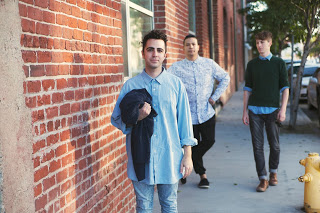 In just a few short weeks Two Cheers are releasing their new album Splendor, a summery, deceptively upbeat album, featuring major chords with major angst. If you've got a taste for The Wombats, The Strokes, or Neutral Milk Hotel, you'll want to get your hooks into Splendor. I recently got to talk to vocalist Bryan Akcasu about their music, their writing, and their new album. (Photos by Shab Ferdowsi) 1. First, please introduce yourselves! My name is Bryan, I am the singer of Two Cheers and I also play rhythm guitar. Mitchell plays lead guitar, Al plays bass, and another plays Bryan the drums. Our good friend John O’Reilly Jr. also played drums on the record. 2. When you sat down to write this album, what were you hoping to achieve? We sort of knew we were probably writing songs for an album, but most of the time we were just playing with ideas for the sake of it. In the past, we used to write songs in a very crafty way, kind of from the top down, and we wanted to break out of that and capture more improvisational, off-the-cuff elements. Sometimes we’d build a whole song around a tiny fragment of a riff. The entire song "Super Owls" was built around the brief chromatic power chord riff right before the chorus… It was a weird little thing that Mitchell was playing during one of our girlfriends’ play dates and I thought it would be fun to try to make a song out of it - kind of building a song from the inside out. I don’t have very lofty goals when I set out to make a song; my songs often start out as curiosities and only later do they become meaningful to me. Most of them do, anyway. 3. The entire album was created in an apartment, how was this different from working in a studio? I’ve actually only worked in a proper studio a handful of times, and I’ve found that I am way more comfortable recording in a non-traditional studio environment. I find it very unpleasant to be on the clock when I am trying to capture a particular emotion or performance. Plus, I know what kind of microphones, preamps, compressors, and reverbs I like to use for each instrument, and I have them all set up and ready to go in my home studio. There is no prestige about it. For instance, I recorded the vocal for “The Explode Boys” in the middle of the night, right after I brushed my teeth before bed. That said, there a few producers I’d like to work with if my budget ever allows it… 4. How did you achieve the unique musical tone of the album? We used only a handful of instruments, amps, and effects for the album demos, and so they all kind of shared an aesthetic. I think the song that became “Splendor” was the blueprint in that regard. For example, we used Mitchell’s Fender Jaguar through a small Vox tube amp and some classic Lexicon reverbs and delays for most of the lead stuff. I used those same reverbs and delays on my vocals as well to give them the same vibe and authority. I also used only a small handful of organ tones from an old Roland JX-3P. On top of that, we came up with all the songs in a relatively short amount of time, maybe four or five sessions over the course of a few months, so our tastes probably didn’t change too much during the demoing stage. Then, throughout the whole recording/mixing process we referenced our demos a lot to make sure the final recordings had the same flavor and excitement as the original sketches. But I think the fact that we were in complete control of every technicality from the demoing to the recording to the mixing to the mastering gave us the opportunity to craft a distinctive, pure sound without any compromises. 5. The album feels like a story- what story were you hoping to tell with the songs? Well, the story isn’t an explicit one; it’s only a story in the sense that there is a spiritual, emotional progression that takes place from the beginning to the end. I mean, the details come from my life, but only in a very mixed up, asymmetrical way -- kind of like a collage of flashbacks. I can’t really explain it too much. That said, it’s vaguely a story about a series of cataclysmic experiences in my life that transformed my whole psyche. 6. How do you reconcile such melancholy lyrics with the upbeat music? I don’t think the lyrics are particularly melancholy! I think that many of them deal with death, loss, insanity, and mourning, but even in those that do, it is in the spirit of facing those things, embracing those things, healing from them, and restructuring reality in order to deal with them. That's the gift of death -- it reminds me that nothing can be taken for granted and every moment I remain alive is sort of a revelation. Of course, life is still going to be harrowing, but I feel like there is a way to embrace the hardship. “Let Me Remember” and “Life Is Full Underground” are both about that: I’m telling myself to go ahead and hurt as badly as I can, to mourn with zeal, to remember everything about the dead as intensely and vividly as I can, but to do it all in the spirit of celebrating the life about me. Despite all that, the whole thing is still a fantastic, wondrous array. That’s why the album is called Splendor. 7. What surprised you most about making this album? I was surprised by how naturally it came about. The music, the lyrics, the tones, the arrangements, and the concepts all seemed to just happen of themselves. The few times I had blocks on the lyrics it was because I had started trying too hard, so I picked up on that and just walked away for awhile. The hard part was in all the technical aspects of capturing it, particularly reproducing the energy and vitality of the demoes, and that is something I worked pretty intensely at and even fretted over a bit. But I think Mitchell and I tapped into something and it happened to be very deep and very generous! We are in love with these songs. 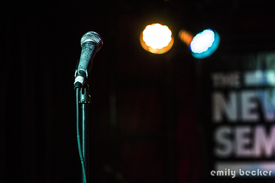 Today wraps up the 2015 New Music Seminar, and I've probably learned more in the past three days than I did after two years of college. For everyone who couldn't attend, I've broken the conference down into one of my favorite mediums for education-- a top ten list. Lesson 1: Fans Are Friends The first panel of the conference was a how-to on DIY, which sounds contradictory but ended up being really rewarding. The enduring theme of the panel was how to treat your fans-- the same as how you treat your friends. Fandom births a two-way street and both sides are required to maintain the relationship. People would rather hear from the artist and their closest team members than from PR teams and label executives working a thousand miles away. Reply to people's snapchats, acknowledge shout-outs and art from fans, know who loves you and love them back. Even if you just take an hour a day to interact with fans, you still have the power to make someone's day. Lesson 2: Know Your Contracts A band is a business. A creative, art driven business, but a business nonetheless. If you don't have a band agreement legally declaring the band as a business, you're going to get lumped into the general population of "general partnership," which means everyone involved has the same liability and rights, so when your keytar player decides to quit because you won't give him a ten minute solo, he's probably going to be taking a good chunk of your money away with him. From the outset, you need to determine who is responsible for what, who owns what, and and who gets what. That keytar player never did anything but drink you beer, so he better not be getting an equal cut of song ownership. Lesson 3: "Copyright. Yo. Shit." This lesson, exact spelling and all, comes from Robert Celestin (RAC Law Offices). And there isn't much explanation necessary. If you don't copyright your music, you don't have any right to it. Period. 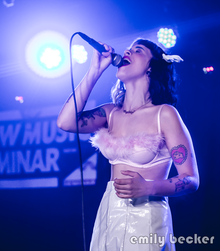 Lesson 4: Melanie Martinez Is A Gift From Above This city is full of semi-inspired pop acts with whispy, inauthentic voices. Melanie Martinez is a miracle prescription-- her bubblegum exterior is just the candy coating on a pill that will tear all the cobwebs off your soul. She's Debbie Harry's lovechild with an angel. She's a wind up doll that became a real girl and owes nothing to noone. I was floored by her voice. Struck absolutely dumb. She goes deeper into herself than you would think possible. She isn't afraid to hurt and break open and scream-- she's a rock star in pop clothing. Lesson 5: There Are No Right Paths Everyone at this conference got there by following a different path. You can go to NYU and major in music business and do internships and get a degree, that's fine. You can drop out of college to go on tour and never get any "official" experiences. You can start booking shows and managing local bands as a teenager, that's fine too. You can spend your life working an office job and then decide you want to go to law school and become an entertainment lawyer at age 50. Every single one of these paths can lead you to success, every single one of these paths is one I saw in the flesh at the seminar. Lesson 6: Bring Your Own Snacks If you're like me, you lose steam really quickly when you get hungry. I personally get cranky, tired, and kind of annoying. Sometimes lunch breaks are built into your day. Sometimes they aren't. Those free pitchers of water can only do so much. Hotel diners aren't especially cheap, and Starbucks isn't either. I like Starbucks, but I also like being able to pay rent. A box of granola bars is cheap and easy to stuff into your backpack. And it'll keep you going after three or four panels in a row. Lesson 7: "Just Do It" Is Great Advice If you want to do something-- if you want to be a band manager or a photographer or a musician, then do it. Approach a local band and offer to help them out, snap photos at a show, meet up with other musicians and write music. There's no golden door for you to walk through, but there's always a window to climb in. Lesson 8: "Just Do It" Is Terrible Advice If you're a man in a room full of female professionals having a discussion about their difficulties in the music industry and how to address them, maybe don't stand up and say "I never let anything get in the way of my success, just go and succeed." Because, you know, experiences are nuanced. 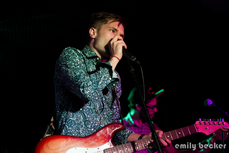 Lesson 9: The World Is Small First day of the seminar, I ran into an RA From my freshman year of college. He was headlining Monday's concert at The Delancey. A couple years and our relationship has changed from him busting my roommates for underage drinking to me photographing his show (which was fantastic). People you meet today may be small players in the game, but a few years down the road they could be the one standing between you and a record deal. Lesson 10: You Can Be Successful And Still Panic This year is my first time getting press passes and press releases regularly. I'm doing everything I dreamed of doing when I started this blog. And yet I found myself in the middle of day two with all the color draining from my face, saying "What am I doing with my life." And I'm okay with that. I'm allowed to panic. I'm happy but I'm not content to just let things going at the same pace they are now. I'm going to keep working and keep hustling because that moment of panic means I know I can do even better. And I'm going to. 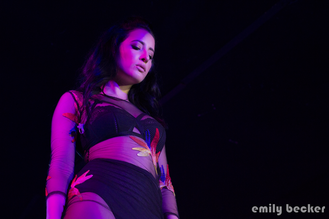 When I sat down to talk with Stalking Gia after her performance at Mercury Lounge on June 10th, I was not sure what to expect. She was a gorgeous singer with an epic voice, and I was still sweating from the M14 bus I had taken three hours ago to get to the show. I was worried that she would have an ego to match her talent—but I lucked out. Not only was Gia incredibly kind, but she was a wealth of musical knowledge and passion. In fact, the first thing she did when we sat down was gush about movie soundtracks. “I’m obsessed,” she cooed. Soundtracks, particularly Donny Darko and American Beauty, influenced her first album, which she admits took a long time to write. She spent two years in LA putting the album together. But after spending all that time in California, Gia has returned to New York and completed her third show in the city. Why did she leave LA? “I had to get out of there before San Andreas happened,” she joked. “That earthquake is way overdue I don’t want to be there when it happens.” More seriously, she notes, “there’s nothing like a New York show.” Her Mercury Lounge performance was number three in her triumphant return to the city, and she has evolved rapidly in her short time back on the East Coast. She has made drastic changes since her first show at Pianos, moving from long setlists with no drummer to shorter, more immersive shows with all live beats. She describes her end goal for live shows as “a reenactment of Snow White.” She believes shows need to be not just heard, but felt. In the studio, “it’s more electronic,” she says. But eventually she hopes “to hire a full band, an orchestra, and have a really epic, evolved sound.” We discuss what makes her music so transformative— “when you’re writing for publishers you have to have this word and this sound¸ they have to be in control… but I sneak in my own ideas.” She concludes, “people want authenticity.” And that’s exactly what she gives them. Check out the full photo gallery here! |
AuthorEmily Becker Archives
July 2015
Categories
All
|
Proudly powered by Weebly
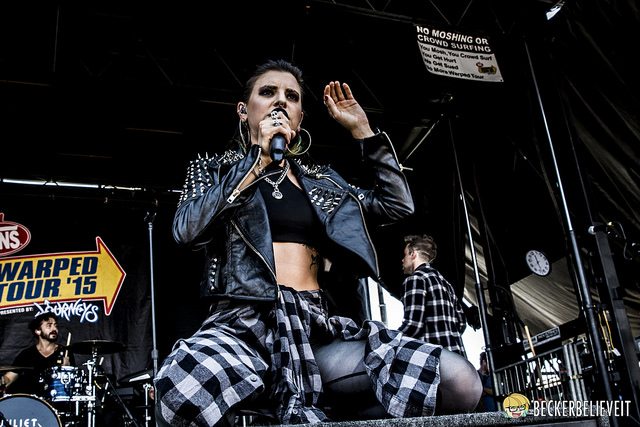



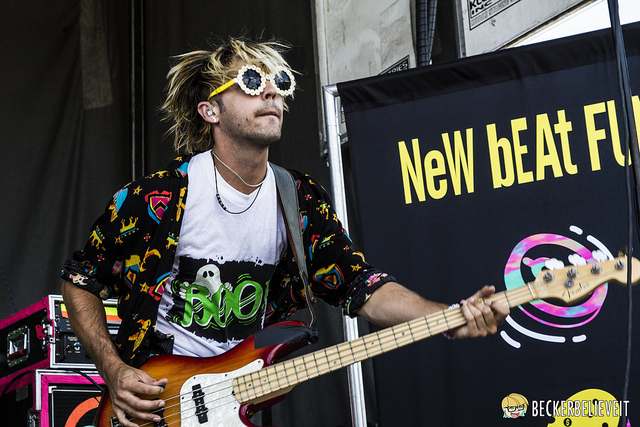
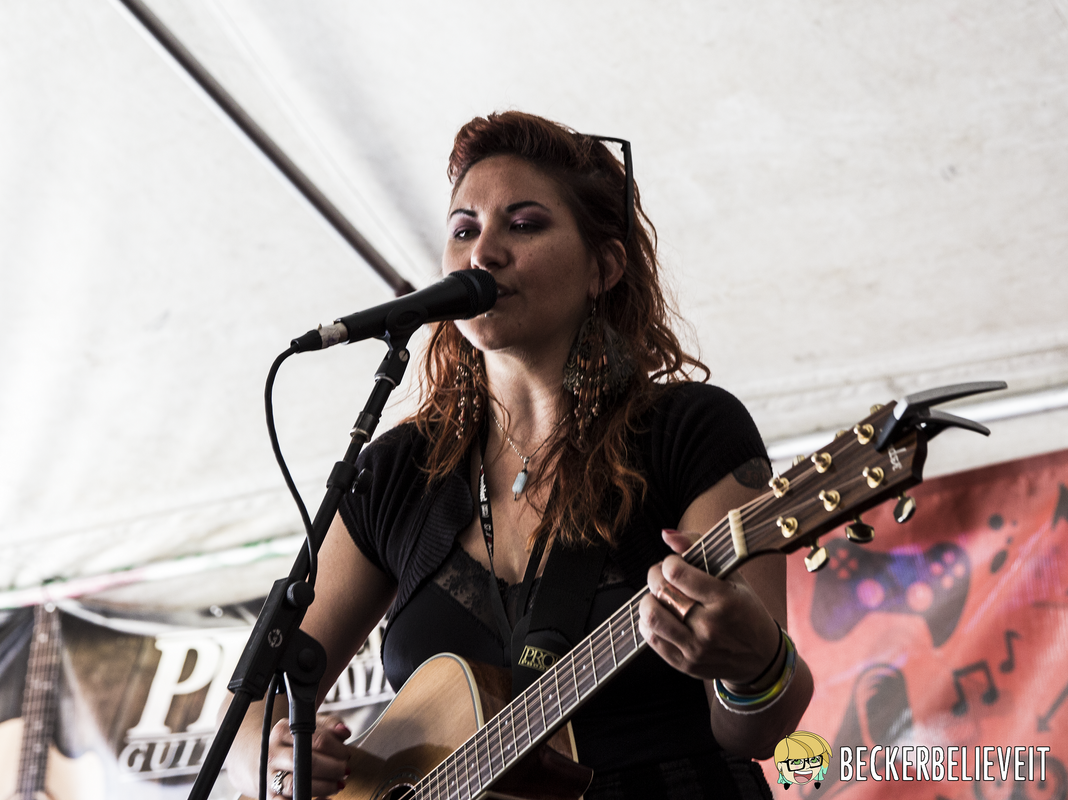

 RSS Feed
RSS Feed